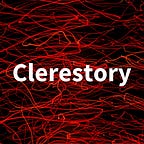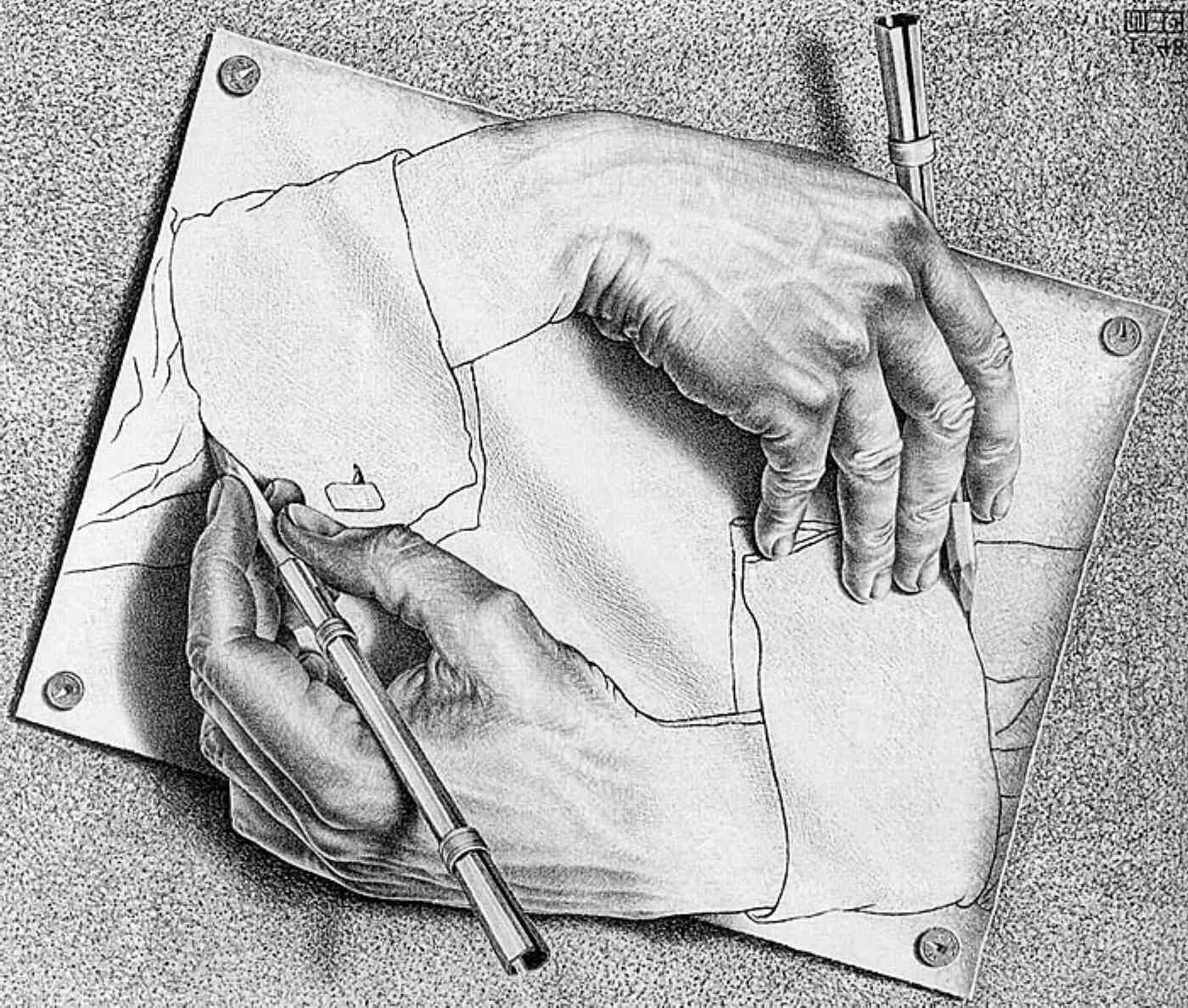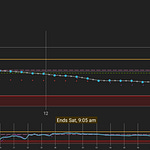I’m Bryan Kam. I endeavour daily to make philosophy accessible and relevant. To that end I write this newsletter and host a podcast called Clerestory. I’m also writing a book called Neither/Nor and I’m a founding member of Liminal Learning. In London, I host a book club, a writing group, and other events. My work looks at how conceptual abstraction relates to embodied life, and how to use this understanding to transform experience.
I was thrilled recently to speak with a hero of mine, Brook Ziporyn, who is Mircea Eliade Professor of Chinese Religion, Philosophy, and Comparative Thought at the University of Chicago.
In this podcast we cover Ziporyn’s intellectual history, from his grandfather’s Spinozism to the ontological ambiguities of Tiantai Buddhism. We spoke about how values undermine themselves when made explicit, how grammar shapes metaphysics, and what happens when one follows anti-realism all the way through to its surprisingly positive consequences.
The Thread: Values That Undo Themselves
Professor Ziporyn traced a philosophical thread that runs from the Daodejing’s second chapter—”when all in the world recognizes the good as good, there is the bad”—through Buddhist emptiness to Spinoza’s critique of teleology. This “value paradox” suggests that explicit embrace of values contains an immanent reversal, a self-undermining which challenges the Western philosophical tradition’s foundation in purpose, natural kinds, and the Good.
We look at related insights across traditions, for example:
Chinese Buddhism’s claim that samsara is nirvana,
in Schopenhauer’s blind will that has no internal divisions nor any ultimate goal,
in Nietzsche’s affirmation of life including its suffering,
and in the Daoist sage who acts through wu-wei (spontaneous action or non-action) rather than purposeful striving.
Grammar as Metaphysics
Our central exploration concerns how language inclines thought, though it doesn’t limit it. Classical Chinese lacks tense, gender, singular/plural distinctions, definite articles, and even clear differentiation between parts of speech—the same word can be beauty, beautiful, or to beautify depending on context. This grammatical openness means that certain metaphysical questions of “Being” simply do not naturally arise. Other philosophical questions, whose appeal is difficult to render into English, do, of course, arise in Chinese — like the paradox “a white horse is not a horse”.
By contrast, Indo-European languages with their subject-predicate structure seem to demand an agent behind every action (Nietzsche’s example: “it rains”—what is the “it” that does the raining?). The law of excluded middle, natural kinds, and teleological thinking may be, as Ziporyn puts it, “downhill” moves in Western languages—statistically more likely to develop because they’re grammatically easier to express. But they are “uphill” for Chinese, meaning that they can be expressed with difficulty. Likewise, Chinese insights into “non-purposive action” can be expressed easily in Classical Chinese, but only with difficulty in Western languages, like Spinoza’s Latin or Schopenhauer’s German.
Ontological Ambiguity and the Emptiness of Emptiness
Ziporyn has written on “ontological ambiguity” in Tiantai Buddhism. Rather than ambiguity being merely epistemological (we don’t know what something is), Tiantai suggests ambiguity is inherent to existence and distinctions. To be determinate requires relations to what something is not—and those relations make any finite thing necessarily ambiguous, appearing differently in different contexts without changing.
This leads to the Buddhist notion of the “emptiness of emptiness.” Rather than a straight line to pure experience beyond concepts, Chinese Buddhist readings suggest the negation of negation brings us back to provisional reality—but transformed. As Ziporyn notes, once you say everything including nirvana is an illusion, the contrast between illusion and reality disappears. “Illusion” no longer functions as a put-down but describes what it means to exist at all.
Neither/Nor as Oscillating Skills
I present my Neither/Nor framework, which treats conceptual and experiential modes not as fixed positions (rationalism vs. empiricism) but as trainable skills that can be developed and oscillated between. Drawing on developmental psychology, particularly Thomas Kuhn’s Last Writings (published 2022), he suggests that the Aristotelian distinction between particular and universal inappropriately conflates two types of non-overlap principles: Particulars come from object impenetrability, whereas universals actually emerge from proprioception and internal bodily states.
The conversation explores how thinkers like Darwin, Nietzsche, and Wittgenstein work “against the grain” of dependent arising, deconstructing conceptual systems—but suggests this deconstructive move alone isn’t sufficient. As both speakers note, engaging in conversation, building anything, or taking collective action requires some organizing concepts, even if provisional.
The Methodological Toolkit
I argue for three approaches to problematizing one-eternal-truth claims:
Historical/Genealogical: Showing that supposedly eternal categories have specific origins and develop separately (Nietzsche on good and evil)
Anthropological: Demonstrating cultural variation in basic concepts (Pascal’s “Three degrees of latitude reverse all jurisprudence; a meridian decides the truth” which I slightly misquote)
Developmental: Revealing how categories emerge from embodied experience rather than being given (Kuhn on how spatial object-tracking gets misapplied to concepts)
While acknowledging these methods can be co-opted (“we just discovered the truth first”), we also explore how they work as “skillful means” (upāya) for different audiences and contexts.
Key Insights
The value paradox: Making values explicit and universal causes them to undermine themselves
Grammatical determinism is too strong, but grammar creates “uphill” and “downhill” paths: Some ideas require more work to express in certain languages
Illusion all the way down isn’t nihilism: When everything including enlightenment is “illusion,” the term loses its negative force
Categories aren’t discovered but co-created: Through collaborative direction of attention rather than discovery of pre-existing kinds
The Bodhisattva’s infinite engagement: Rather than ending thought, emptiness multiplies perspectives—learning to think like every type of being
The Philosophical Lineage
We weaves together some surprising resonances:
The Daodejing and Zhuangzi’s perspectivalism
Mahayana Buddhism’s two (or three) truths
Spinoza’s substance monism and critique of teleology
Schopenhauer’s blind will and Nietzsche’s affirmation
Hegel’s failed attempt to make concepts non-exclusive
Contemporary developmental psychology and anthropology
Final Reflection
As Ziporyn notes, following nihilism “all the way through” doesn’t lead to meaninglessness but to proliferating perspectives and a deepening of meaning. Rather than escaping concepts, the challenge is learning to embrace their provisionality. We’re “always walking two roads,” confronting not just others’ perspectives but our own multiplicity across time—what Nietzsche called the “multiplicity of souls” within each person.
Please share (or like!) this post if you’ve read this far so that I know you’re still with me :)
Brook Ziporyn’s Books
Recent Work
Experiments in Mystical Atheism: Godless Epiphanies from Daoism to Spinoza and Beyond (2024) - A profound exploration of “atheist mysticism” that argues for a religious rejection of God, drawing on Daoism, Buddhism, Spinoza, Nietzsche, and Bataille — with an impressive 546 page online supplementary!
Translations
Zhuangzi: The Complete Writings (2020) — A comprehensive translation of the entire Zhuangzi
Zhuangzi: The Essential Writings with Selections from Traditional Commentaries (2009) — A focused translation with traditional commentary
Daodejing (2022) — A fresh translation of the foundational Daoist text
On Chinese Buddhism
Emptiness and Omnipresence: An Essential Introduction to Tiantai Buddhism (2016) — An accessible introduction to Tiantai Buddhist philosophy
Being and Ambiguity: Philosophical Experiments with Tiantai Buddhism (2004) — Philosophical explorations of Tiantai thought
On Coherence in Chinese Philosophy
Ironies of Oneness and Difference: Coherence in Early Chinese Thought; Prolegomena to the Study of Li (SUNY Press, 2012) — Traces how Chinese thinkers approached coherence, identity, and value
Beyond Oneness and Difference: Li and Coherence in Chinese Buddhist Thought and Its Antecedents (SUNY Press, 2013) — Continues the exploration of Li (coherence/principle) through Chinese Buddhist philosophy
Moretoitivities — Ziporyn’s academic website, named after the Tiantai concept of “moretoitivity” (the quality of always constitutively having more-to-it), serves as an ongoing philosophical laboratory where he continues to develop themes from his published work, posting supplementary materials, responses to readers, and new ruminations on atheist mysticism, Chinese philosophy, and comparative thought.
He’s also done a great “Why This Text Matters” talk on the Daodejing:
Brook Ziporyn is the Mircea Eliade Professor of Chinese Religion, Philosophy, and Comparative Thought at the University of Chicago Divinity School. Bryan Kam hosts the Clerestory podcast and is writing Neither/Nor, exploring oscillation between conceptual and experiential modes of knowing.
If you’d like to consider supporting my philosophical work financially, you can do so either here on Substack, or on Patreon.
I’d love to hear your comments!
Best,
Bryan
Listen to a related podcast
The podcast I released last week with Alex Gheorghiu pairs well with this podcast:











